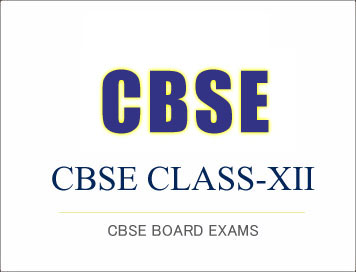(Download) CBSE Class-12 Sample Paper (Legal Studies) 2014-15
Disclaimer: This website is NOT associated with CBSE, for official website of CBSE visit - www.cbse.gov.in

(Download) CBSE Class-12 Sample Paper (Legal Studies) 2014-15
1. The landmark 1973 Supreme Court case of KeshavandaBharathi v. State of Kerala discussed the question about……….
a) collegium model of appointment of judges in India
b) scope of separation of powers in India
c) the basic structure or feature of the constitution
d) Power of judicial review
2. What does the Latin phrase audialterampartem mean?
a) 'listen to the other side'
b) ‘one cannot be forced to be a witness against himself’
c) ‘justice delayed is justice denied’
d) ‘ignorance of law is no excuse’
3. A sells his garden as well as his house through one instrument to B.
Whereas; B wants to retain only the house and wants to cancel the transfer
regarding the garden. Can B have the right to partial selection?
a) Yes, B has the right to selection.
b) Yes, B can have partial selection only if ratified by A.
c) No, B has to accept or reject the transfer in totality.
d) No, because House and garden are inseparable.
4. “You must not use a steam hammer to crack a nut if a nut cracker would
do.”
This statement refers to which doctrine of Administrative Law.
a) Doctrine of Legitimate expectation
b) Doctrine of proportionality
c) Doctrine of Governmental liability
d) Doctrine of Separation of powers.
5. Rahul is facilitating an alternative dispute resolution in which parties appoints a neutral third party who facilitates the parties in achieving an acceptable, voluntary agreement, which is more formal than negotiation.
What is Rahul facilitating?
a) Arbitration
b) Mediation
c) Conciliation
d) Administrative Tribunal
6. Which Indian Statue provides for statutory free legal aid under criminal law;
a) Code of Criminal Procedure
b) Advocates Act
c) Indian Penal Code
d) Indian Evidence Act.
7. With regards to International Human Rights “ICCPR” stands for:
a) International Covenant on Civil and Political Rights.
b) International Covenant on Criminal and Penal Rights.
c) International Charter on Civil and Political Rights.
d) International Committee on Civic and Public Rights.
8. The International Criminal Court was set up with the purpose of prosecuting criminals for 4 major crimes. Which amongst the following doesn’t belong to that category?
a) Genocide
b) War Crimes
c) Crimes against Humanity
d) Intellectual Property Piracy.
9. A public authority was given the duty to construct a community center for public in Uddeshyanagar and land was also allotted for this purpose. But instead of constructing community center, the public authorities started constructing shops on that allotted land. What remedy is available to the citizens of Uddeshyanagar under the Indian Constitution?
10. A boy is sinking in the swimming pool of a resort. A man who is beside
the pool does not make any attempt to save this boy. Will the man be criminally
liable? If yes why; if no why not?